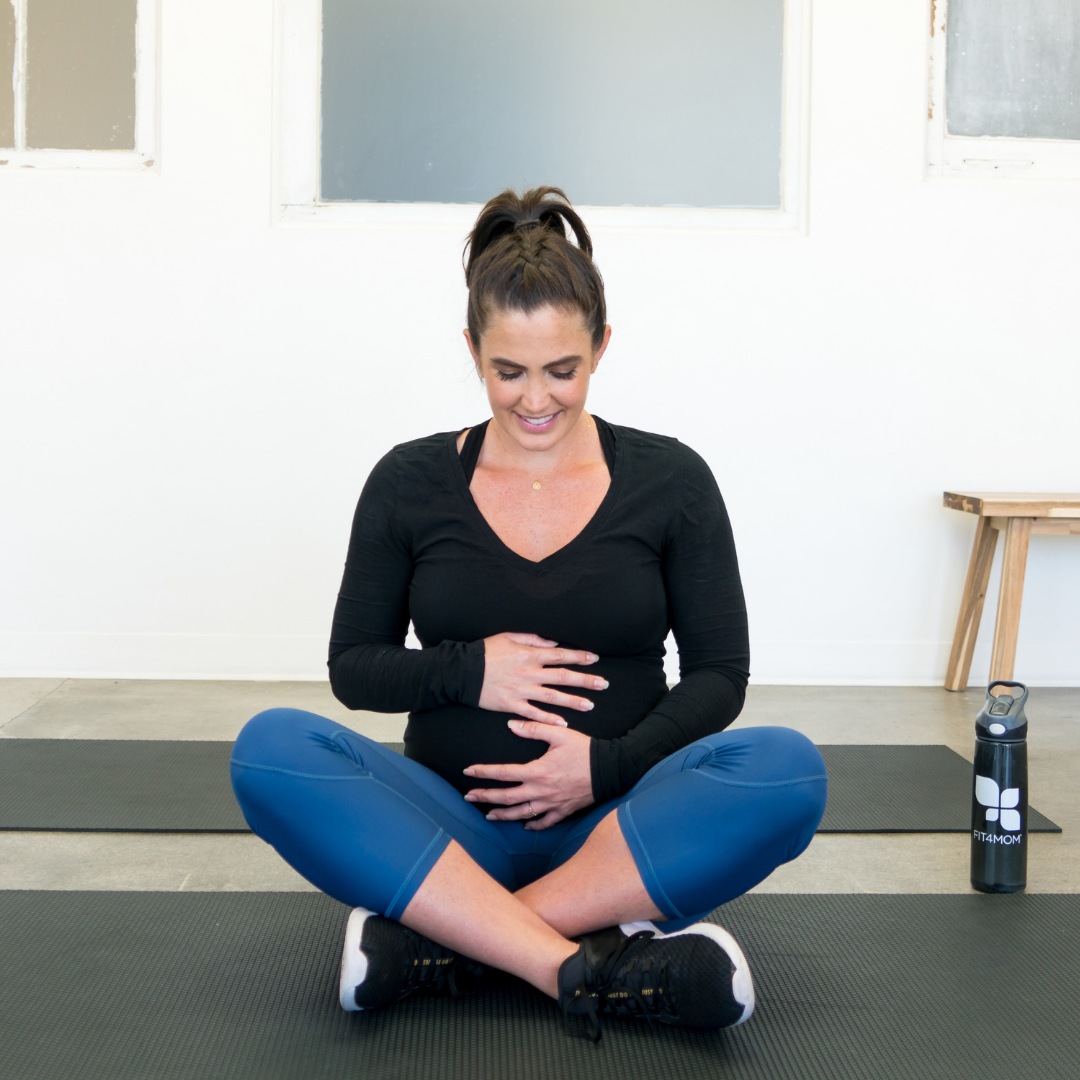
Pregnant? What a Pelvic Floor Physical Therapist Wants you to Know
Rachel Miller, PT, DPT -- Physical Therapist, Certified Pilates Instructor, and Founder of The Pilates PT
There is so much to think about during pregnancy- your body, the baby, and figuring out everything you need for the baby. But the saying “you don’t know what you don’t know” is so true. I was an orthopedic Physical Therapist when I had my babies. But the lack of postpartum care and pre/postnatal education changed my path so I continued my journey and also became a women’s health/pelvic floor Physical Therapy. There is so much I wish I knew when I was pregnant, so I made this top 5 list for you.
Blog post originated from FIT4MOM Greater NW Chicago. Shared with permission.
Exercise is beneficial: As long as you have your birth provider’s permission, exercise is beneficial during pregnancy. Prenatal wellness programs like FIT4BABY, can help decrease the risk of gestational diabetes, decrease common discomforts, relieve stress, and build endurance. The American College of Obstetrics and Gynecology recommends 30 minutes or more of moderate exercise per day on most days of the week. Know that you may need to modify the intensity or type of exercise, especially later in your pregnancy. Avoid overheating, over-stretching, and be careful with your balance as pregnancy progresses. Listen to your body and your birth provider.
You can be proactive: While we cannot control everything that happens during pregnancy, we do have control over our posture, muscle activation, and how we perform everyday activities and exercise. As the baby grows, there will be increased pressure on the abdominal wall and pelvic floor which can contribute to diastasis recti and incontinence. What we can control is not putting even more pressure on the system. We can make sure our deep inner core system is functioning optimally. Learning these concepts during pregnancy can also assist with delivery and postpartum recovery.
You can (and should) prepare for delivery: If you are planning for a vaginal delivery, there is a lot to learn. Everything from perineal massage to labor positions, comfort measures, and effective pushing techniques. I highly recommend taking a comprehensive birth class so you are prepared- mentally and physically for the amazing task that lies ahead. If you are planning for a c-section, make sure you know what that entails and your options for that day.
Learn about postpartum recovery BEFORE you deliver: Once you are holding that baby you tend to forget about everything else (including your own body). The best time to learn about postpartum recovery is the last trimester of your pregnancy. Knowing how to reconnect with your deep core muscles, what to do/not do when taking care of baby, and what to check for/ask your provider about at 6 weeks postpartum is so important. Also knowing how to get back into exercise in a safe, smart way once you are ready. Learn about common issues such as diastasis recti, pelvic pain, incontinence, and prolapse.
Find your dream team: There is nothing wrong with asking for help during pregnancy, birth or postpartum. There are birth doulas that can support you during birth, and postpartum doulas that help with the baby when you get home (even overnight). Also lactation consultants, mental health providers that specialize in pre/postnatal conditions such as anxiety and depression, and pelvic floor Physical Therapists that can help with pain, core weakness/diastasis recti, leaking urine/feces, prolapse and more during or after pregnancy. I highly recommend researching providers during pregnancy and making a list of your go-to team so you know who to call if you need to. And of course, having family and friends help with childcare and meals is wonderful and can help a lot. Lean on your support system of family and friends to make time for yourself. You deserve some self care time; whether that is a pedicure, a walk without the baby, or going to an appointment to help you recover, you are allowed to take care of yourself too.
Remember your body is meant to do this. I truly believe my first birth would have gone differently if I had understood the more effective labor/delivery positions and pushing techniques . I think I wouldn't have pushed as long, maybe wouldn't have torn as severely, possibly avoided a vacuum assisted delivery, and my postpartum recovery would have been much easier. So, know what to expect and what to ask for. Advocate for yourself. Your body will thank you, now and in the future.
You can learn more about my online self-paced Proactive Pregnancy program here.
